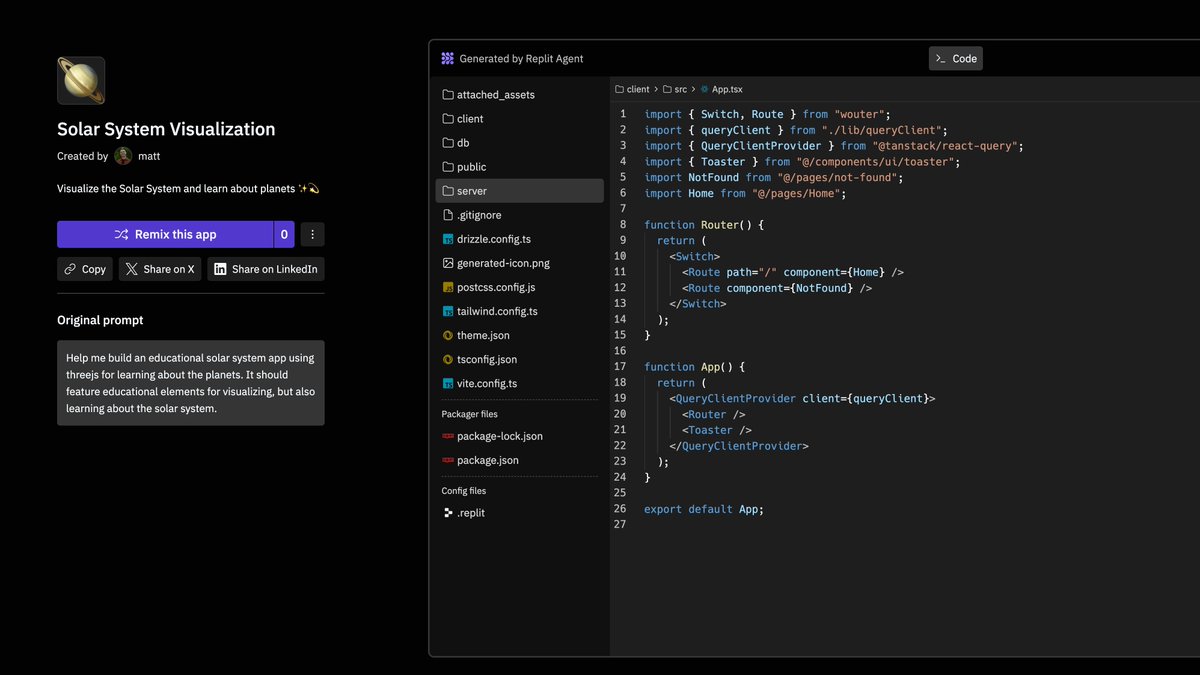
How to get URL link on X (Twitter) App

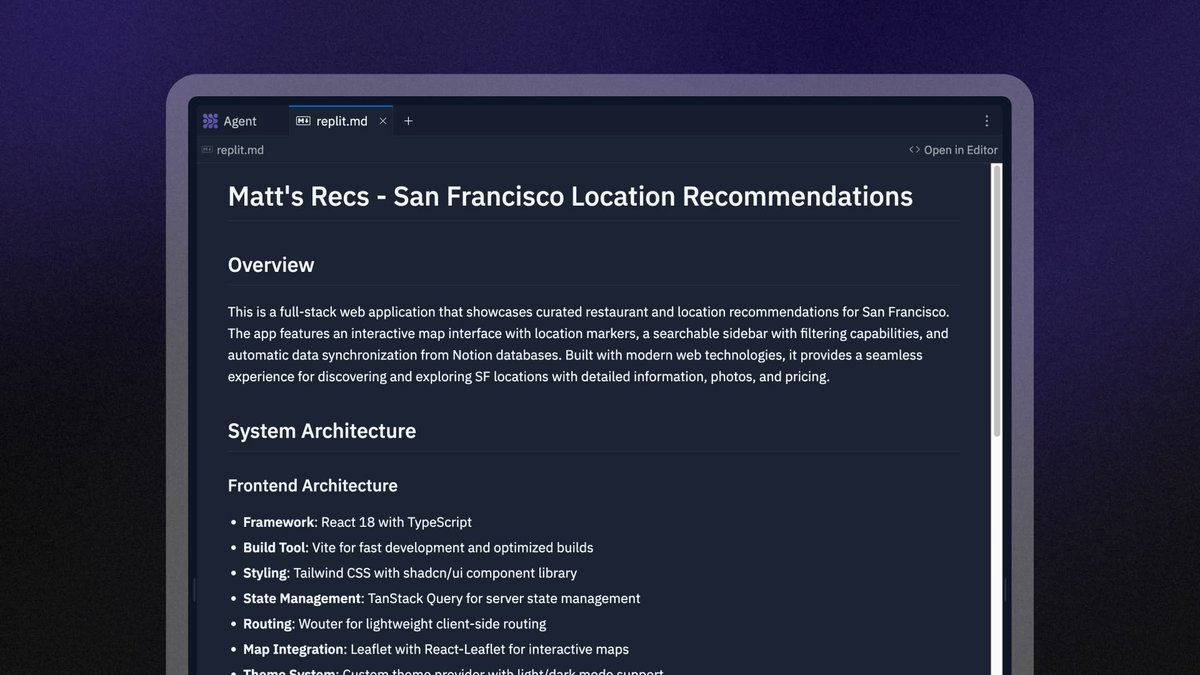
 A file called 'replit.md' now gets created in every Agent project. The purpose of replit.md is twofold:
A file called 'replit.md' now gets created in every Agent project. The purpose of replit.md is twofold:
 1/ We know AI is non-deterministic—that means that the same prompt can get different results.
1/ We know AI is non-deterministic—that means that the same prompt can get different results.

 INITIAL DISCOVERY & SCOPE ASSESSMENT
INITIAL DISCOVERY & SCOPE ASSESSMENT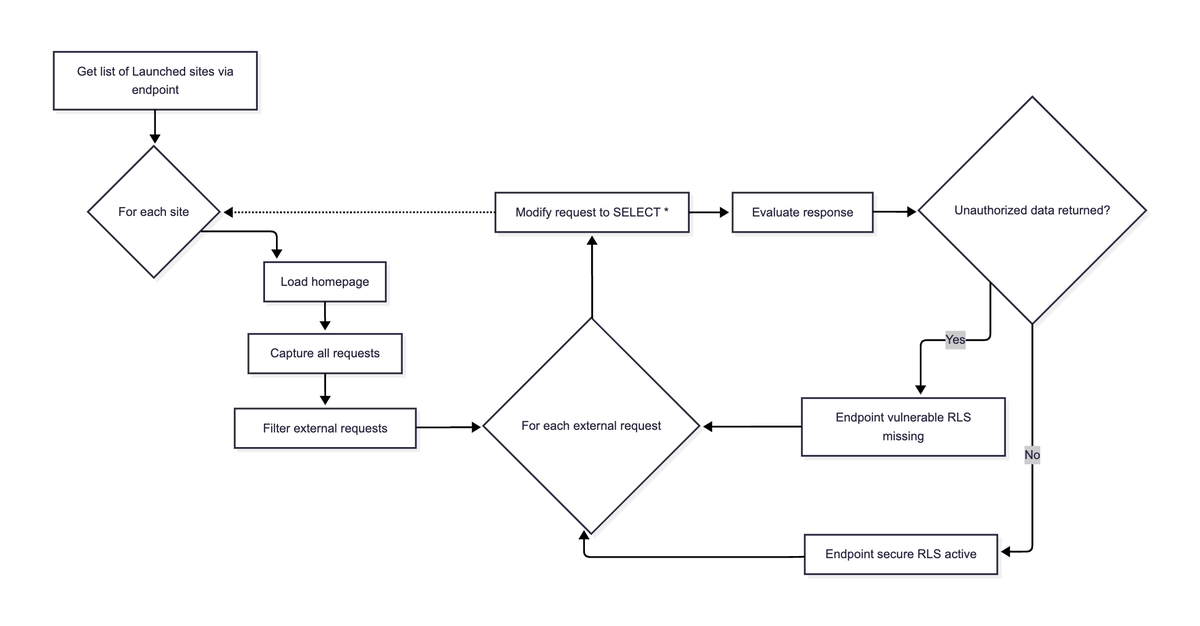
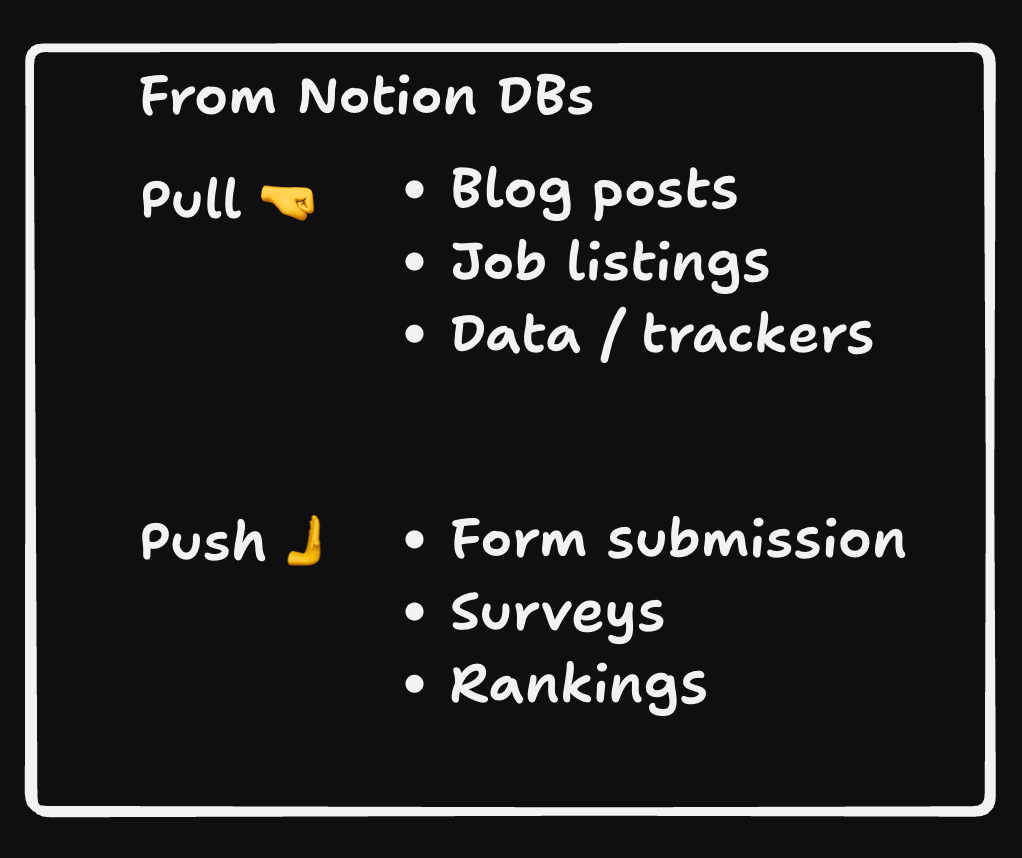
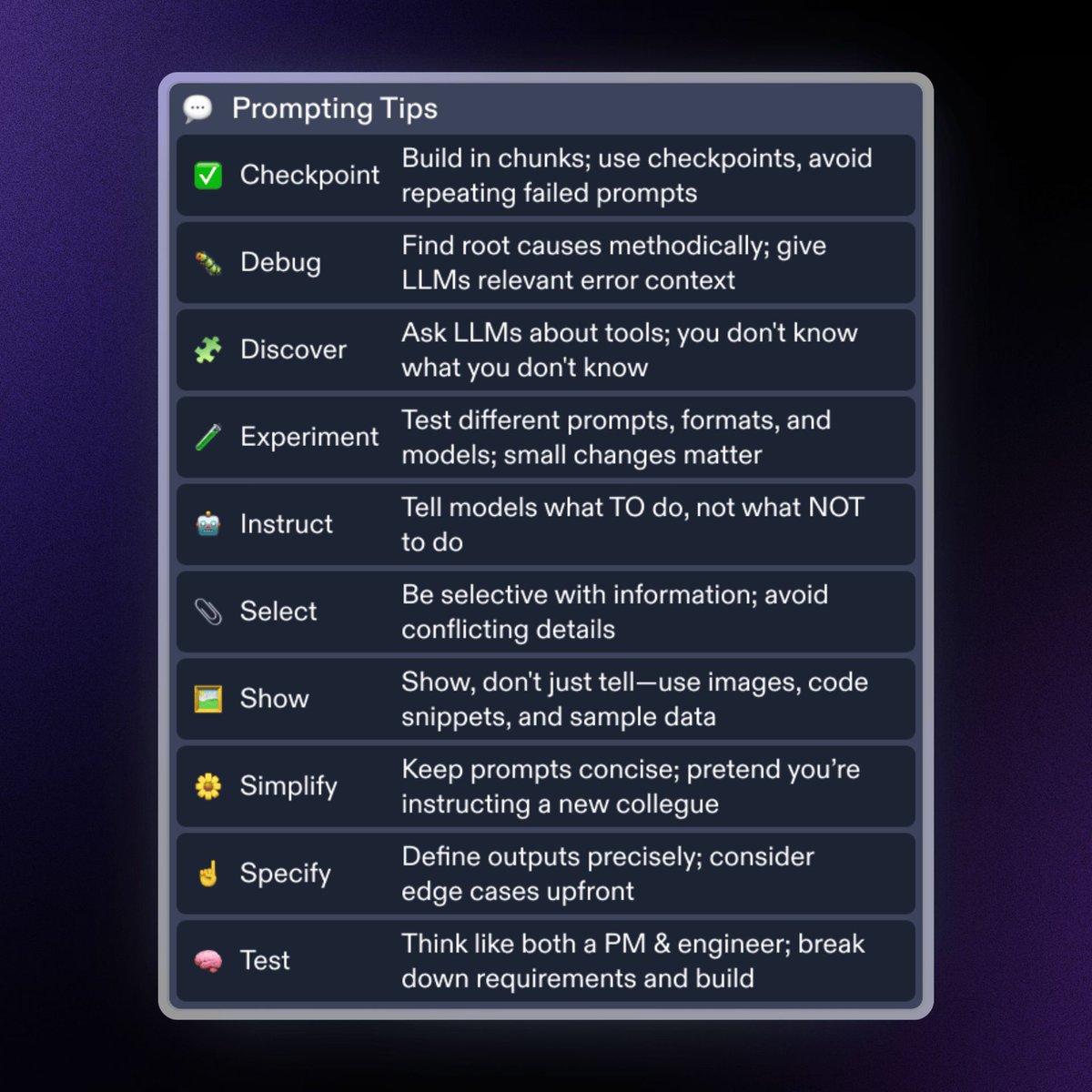
 Checkpoint: Build iteratively. Break large goals into smaller, testable steps. Use features like Replit Agent's Checkpoints to save progress and experiment safely.
Checkpoint: Build iteratively. Break large goals into smaller, testable steps. Use features like Replit Agent's Checkpoints to save progress and experiment safely.
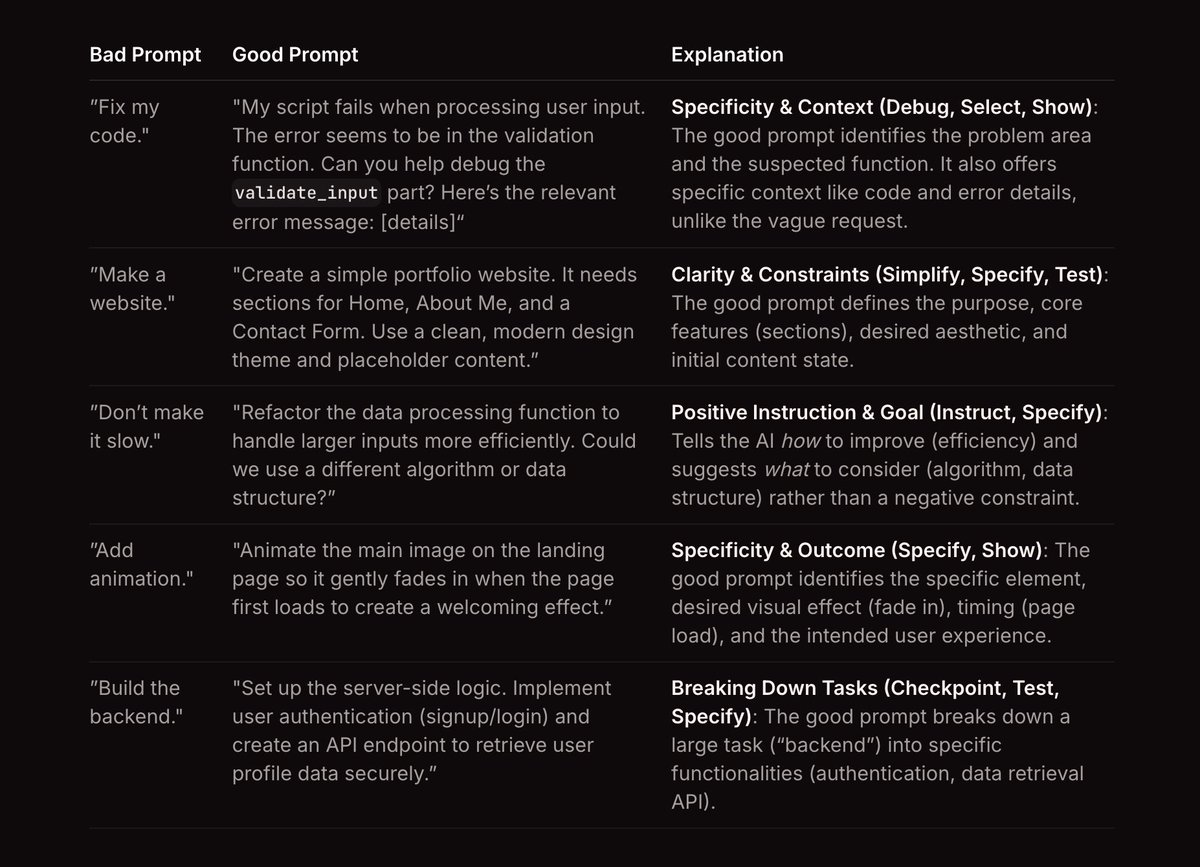
 Bad: "Fix my code."
Bad: "Fix my code."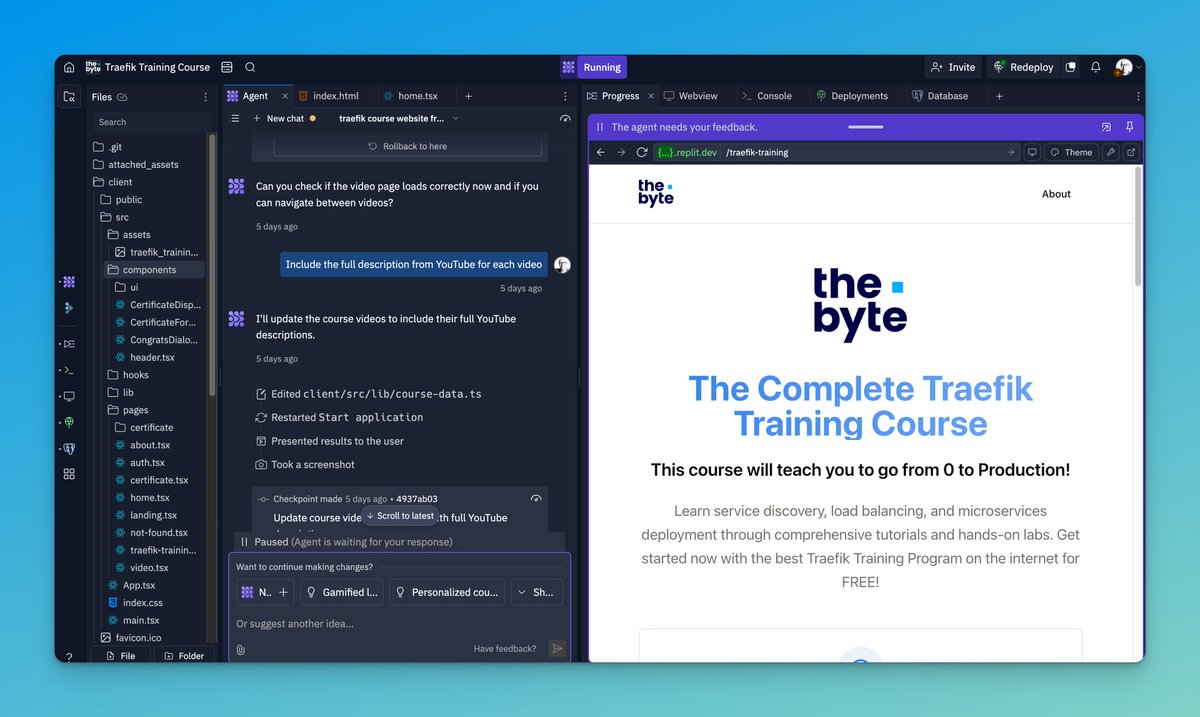
 Brian was paying $1,900/year for Kajabi to host his online course—but wasn't using half the features.
Brian was paying $1,900/year for Kajabi to host his online course—but wasn't using half the features. 
 3/ App cover pages got a glow-up! Now featuring your Agent prompts and a more dev-friendly layout to showcase your work.
3/ App cover pages got a glow-up! Now featuring your Agent prompts and a more dev-friendly layout to showcase your work. 